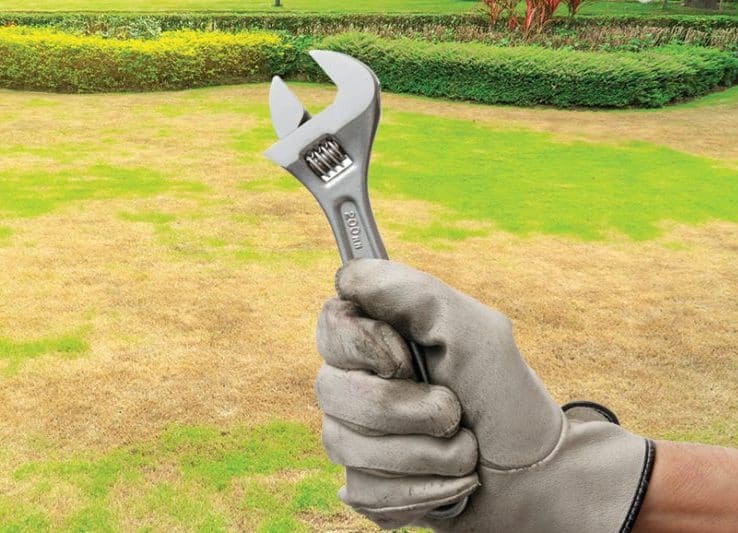
News

How to Help Your Lawn Repair After Grub Damage
March 17, 2024
Lawn grubs have been particularly prevalent this year, affecting and damaging many Aussie lawns. If your lawn has been impacted by grubs, you may be wondering what the best way is to help your lawn repair itself. In this blog, we look at a few simple steps to help get your lawn on the mend.
Are grubs in your lawn?
If you have just noticed that your lawn has become damaged by grubs or armyworm, it is best to treat them as soon as possible so less damage occurs. For removing grubs and armyworm we recommend a fast-acting insecticide like Battle Insecticide for treating the adult Black Beetles as soon as possible.
Prevention is the best solution
To help prevent another grub and armyworm invasion on your lawn apply a preventative insecticide like Grub Guard Ultimate, Acelepryn GR and Acelepryn Liquid. One application of Grub Guard Ultimate will protect the lawn for 6 months. 2 Applications of Grub Guard Ultimate will provide a year’s worth of protection for your lawn.
Grub Guard Ultimate is one of the safest insecticides on the market. It works by targeting a specific muscle receptor that is common with damage causing insects like armyworm and grubs. Other non-damage causing organisms like bees, earthworms, birds, fish, and mammals don’t use the same muscle receptor making it safe to use around other non-target organisms.
Ensuring grubs are fully removed
Lawn grubs and armyworms have different stages in their lifecycle. This often means it can take a few repeated applications of a fast-acting insecticide 7 days apart to fully remove them.
If you are unsure of whether there are still grubs and armyworm in your lawn it is best to do a grub test. To do a grub test, mix a bucket of soapy water and pour it over the edge of an affected area (where the grass is brown or dry). Keep an eye on it and after about 10 minutes or so, usually if they are there, they will come up to the surface. This test is best done at dawn or dusk when they are most likely to be active.
Rake out the dead material
If there is a lot of dry and dead plant material present, give the area a light rake. Removing any dry and dead material will help the lawn thicken up and recover quicker. Be careful to not remove too much of the grasses runners as it can still grow back and repair from here.
Irrigation
After a grub attack, a lot or most of the leaves of your grass may have been removed. This too will remove a lot of the moisture from your lawn. To help replace lost moisture, irrigate regularly during the recovery period. You can adjust the duration and number of times you need to water to suit current conditions.
Mowing
While the grass is repairing itself you still want to ensure you are mowing frequently. Mowing is important to help ensure your lawn stays healthy during recovery. By mowing regularly, you will help encourage lateral growth and further thickening of the lawn.
As a general guide it is best to mow frequently enough so that only one third of the leaf is removed with each pass. This will help reduce stress on the lawn, especially while it is repairing.
Fertilising
Following grub damage it is best to hold off from fertilising your lawn until your lawn can green up naturally. It is best to wait until the lawn has had about 50% green up/recovery to then apply a fertiliser. This may seem tedious to wait and then fertilise, but you want to ensure you won’t be causing any extra stress and possible fertiliser burn.
After you the lawn has naturally greened up apply a fertiliser. We recommend using our Lawn Solutions Premium Fertiliser as it contains both fast and slow release granules packed with nutrients your lawn needs to grow and repair itself. This fertiliser continues to release nutrients to your lawn for up to 12 weeks, for a sustained boost.
Lawn Kelper is another great option to help give your lawn a boost during the recovery period. Lawn Kelper is a liquid nutrient package designed to increase turf vigour, stimulate leaf growth, and strengthen roots. This can be applied at monthly intervals.